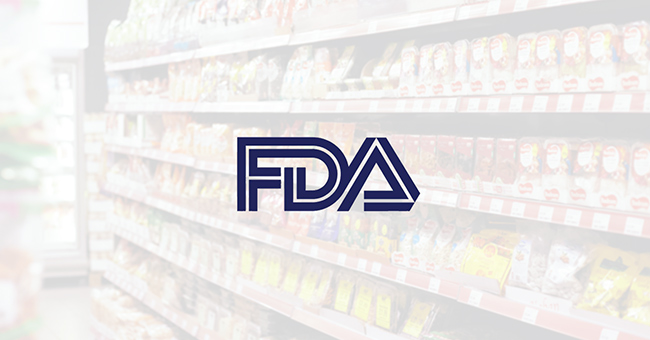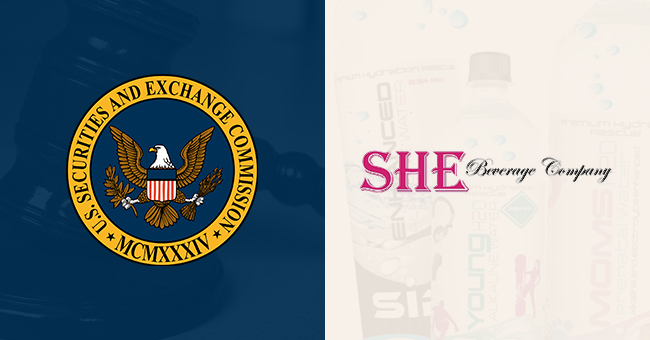In this roundup we take a look at how new regulations could impact food labeling and deceptive advertising lawsuits and break down two cases against beverage companies that recently brought the attention of the Security and Exchanges Commission.
Regulatory Updates
The Food Labeling Modernization Act of 2021 was reintroduced to Congress last month and proposed sweeping changes to how nutritional information is displayed on food labels. Among the most significant would be a list of demands for the FDA including issuing guidance on a standardized symbol for calorie information on the front-of-pack and definitions for common terms such as “natural,” “healthy,” “artificial” and “synthetic.”
Although similar bills have been introduced in the past only to fail passage, the pressure to clearly define these common terms is increasing — and food and beverage companies welcome the guidance, according to attorney Justin Prochnow, who focuses on regulatory and business issues in the food and beverage industries in his practice at Greenberg Traurig LLP.
Prochnow has defended numerous companies in class action cases regarding food labels and said clearer definitions would make it more difficult for plaintiff lawyers to file misleading and false advertising suits over food labeling technicalities in mass quantities, as they have been over the years.
“When you have definitions you can point to those definitions and say ‘we meet that definition with what we are doing here,’ and the case goes away,” Prochnow explained. “When there isn’t a definition it becomes the proverbial ‘he said, she said’ case and that’s what plaintiff lawyers like because that is going to get past initial stages and get to a judge or a jury who ultimately decides who is right about those particular issues.”
As Prochnow explained, the process of filing numerous complaints at once is so easy that many litigators adopt it as their de facto business model; once they find a claim with enough applicability they can virtually “recycle” the same letter, filing it against every company producing a similar product. Even if the intent is not necessarily to bankrupt companies over a claim, they are looking to force the hand of smaller businesses to settle out of court. These types of filings began to gain ground in the early 2000s, after a class action around products containing high-fructose corn syrup with “all-natural” label claims, Prochnow said, and have been consistently increasing in volume ever since.
Among the most notable of these “frequent filers” is Long Island-based law firm Sheehan & Associates, which has filed over 256 claims since the beginning of 2019, according to a report from Law Street Media. A significant portion of Sheehan’s suits have been against food and beverage companies for labels such as vanilla-flavoring in products where artificial flavors were actually used or real fruit claims by sparkling water companies when the flavors were derived from fruit compounds. Sheehan previously told BevNET he hopes by bringing these cases the companies themselves will begin to be more careful with how they label and advertise the product and, in turn, protect the consumer.
The bill also targets sugar content in food and beverage products and would bar companies that sell products with more sugar than an FDA-defined level from making any health claims at all. The majority of the bill is focused on standardizing how consumers interpret the benefits of food and beverages, including a provision mandating the FDA to establish warning symbols on packaging for products that are high in saturated or trans fats or sodium and create a scoring system to convey a product’s health “value” at scale.
However, Prochnow noted that “the definition of healthy that is currently being held in the regulations doesn’t meet the standards of this day and age,” and cited the warning letter to the producers of KIND bars that recently challenged the definition of healthy.
Whether the act actually makes it into law or not, Prochnow and the new proposed regulations emphasize a need for food labels to continuously evolve with the changing landscape of the industries.
SEC Violations
SHE Beverage Co.
Two beverage companies are under fire from the Securities and Exchange Commission (SEC) this month after allegedly misleading investors. In a complaint filed against SHE Beverage Co on September 14 in the United States District Court Central District Of California, SEC litigators claim the female-focused lifestyle beverage brand misused funds from investors to cash in on luxury items and personal vacations.
The complaint states that SHE’s management team — composed of CEO Lupe Rose, CFO Sonja Shelby and COO Katherine Dirden — lied about their company’s business plan and success to over 2,000 investors while raising over $15 million in unregistered stock sales from 2017 to 2019 — allegedly claiming at one point to have used 30% of the capital to restock its product inventory.
“In fact, they spent only approximately 2% of the monies they raised on beverages. In the meantime, they misappropriated roughly half the offering proceeds—at least $7.5 million—in cash withdrawals and to pay personal expenses such as cars and trucks, rent, luxury retail goods, and trips to casinos” the complaint states.
The celebrity driven brand was founded in 2015 by Rose and Shelby and produced lines of alkaline water, beer and hard lemonade. In 2019, the company’s executives filed a lawsuit against its former NBA star Anthony “Tony” Farmer, and his girlfriend Chyanne Jacomini for illegally selling shares of the company. That case is still pending.
SEC is seeking “seeking permanent injunctions, surrender of any profits as a result of the alleged fraud, and civil penalties against Rose, Shelby, and Dirden.” The company could not be reached for comment and its phone number has been disconnected.
Boston Beer Co.
Truly Hard Seltzer and Samuel Adams maker The Boston Beer Company is facing a proposed securities class action in the U.S. District Court for the Southern District of New York after allegedly concealing the decline in its hard seltzer sales in an earnings report in April to amplify stock prices. The complaint was filed on September 14 on behalf of Boston Beer Co. investor Joseph Siegel.
According to a complaint, the beer maker initially stated it projected its earnings to generate a $22 to $26 price per share for the rest of the year; However, by its Q2 earnings call, the company said it had failed to meet its initial expectations because Truly Hard Seltzer sales were “softer-than-expected.” At the time, expected earnings dropped to $18 to $20 per share despite the fact the company’s commitment to ramp up production in anticipation of a surge in sales over the summer. The company also stated that it didn’t expect to “incur any hard seltzer-related inventory write-offs” despite sales falling short.
During its most recent earnings call in September, Boston Beer completely withdrew its 2021 financial guidance; in response, share prices dropped 3.7%. According to the complaint, Siegel claims Boston Beer’s executives misled investors in a “fraudulent scheme” that spanned the course of 2021 and have violated the Securities Exchange Act of 1934.
“Had plaintiff and the other members of the class and the marketplace known the truth regarding the problems that Boston Beer was experiencing, which were not disclosed by defendants, plaintiff and other members of the class would not have purchased or otherwise acquired their Boston Beer securities,” Siegel stated in a complaint.
Other notable updates from the Courtroom:
- Vitamin Energy has resolved a trademark dispute against Boomer’s Natural who was selling supplements under the brand’s name
- Energy drink brand Celsius withdrew charges against A SHOC in a case claiming that the brand’s Accelerator line infringes on CELSIUS’ trade dress.
- Grocery retailer Aldi has been freed from a class action lawsuit alleging the brand’s almond milk did not contain real almond flavor

